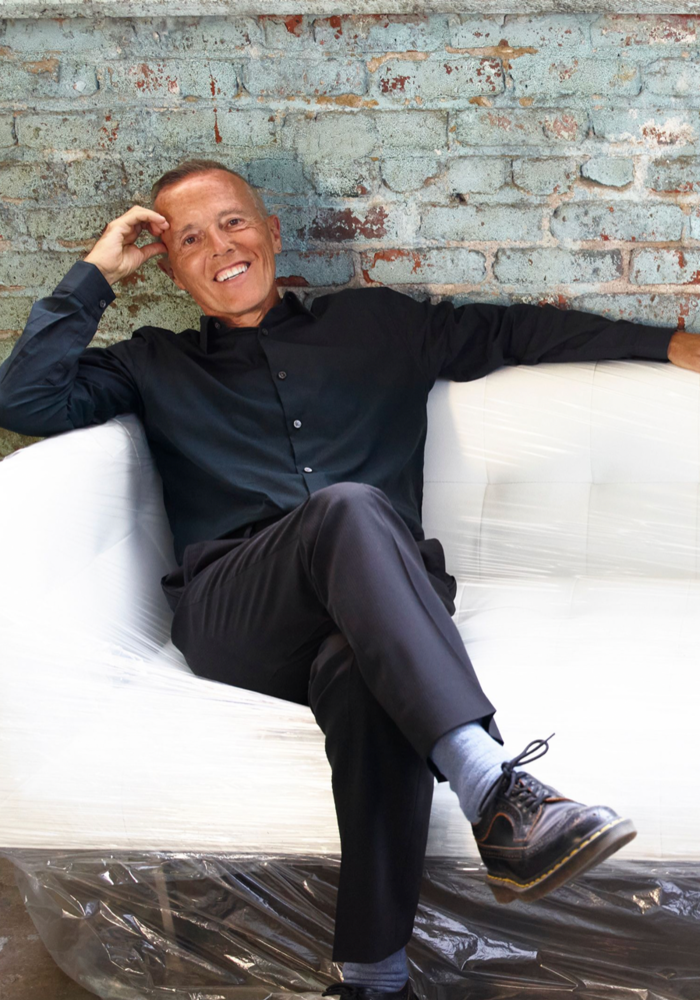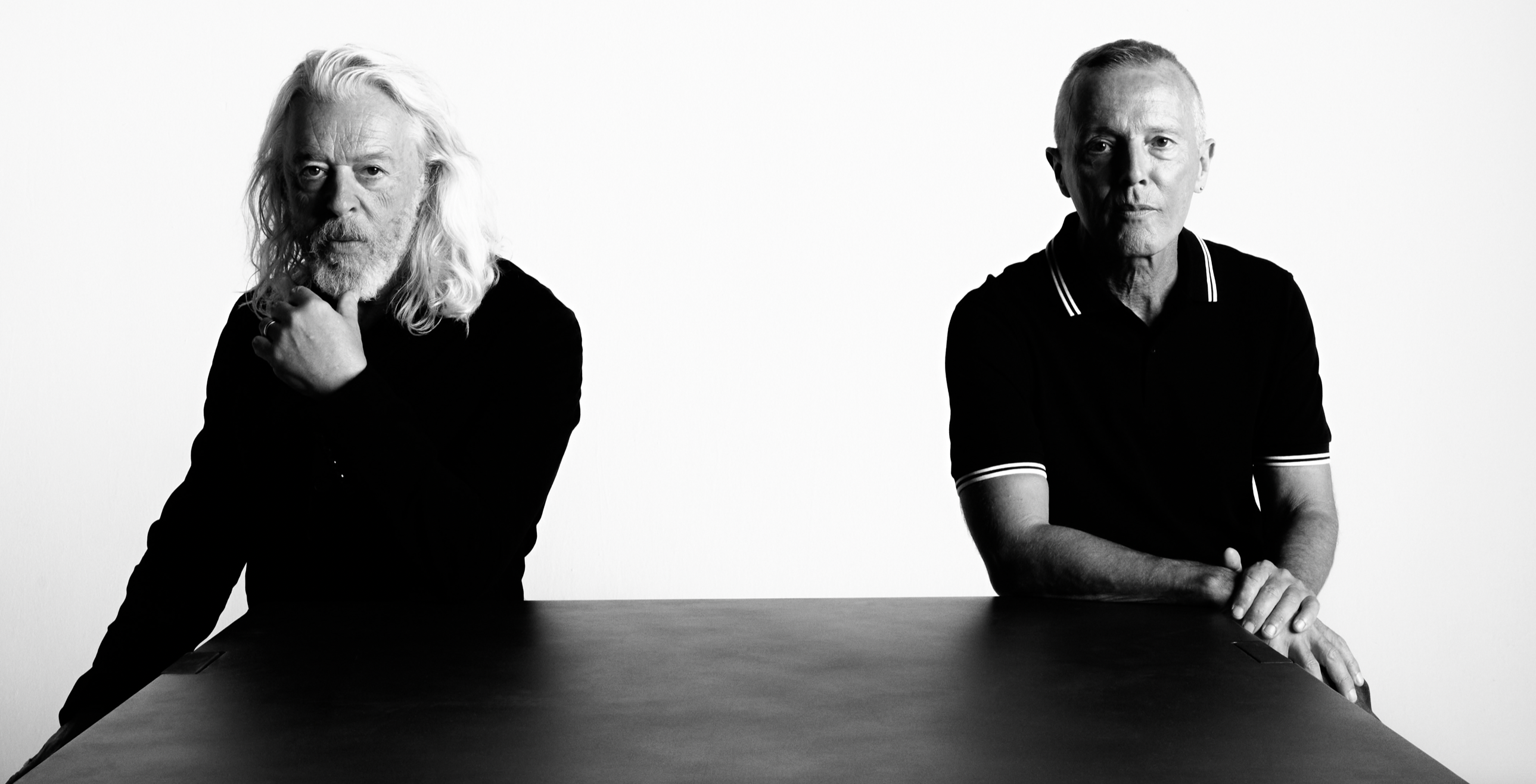Curt Smith, one half of Tears For Fears, sits down for an in-depth conversation with Headliner about the band’s new album The Tipping Point, the complex nature of his relationship with bandmate Roland Orzabal and the events that lead them to return to making music after 17 years…
It’s September 21, 2021, and Curt Smith and Roland Orzabal, are making their way to the stage of the Grosvenor House Hotel in Park Lane to collect the Outstanding Song Collection Award at the Ivor Novello Awards. The Tears For Fears duo have been honoured with the ceremony’s top honour, and while the significance of the occasion isn’t lost on either, the moment is about so much more than the gong they are about to be presented with.
The duality that exists between them, and which has often revealed itself through the band’s stellar catalogue, is currently laid bare for all to see. The standing ovation in the room, packed with many of the most celebrated songwriters and performers of the past 50 years, seems to be never-ending, the applause and cheering deafening. And while Orzabal, looking rightly triumphant and in celebratory mood, does much of the talking once the eruption of noise eventually subsides, Smith stands to the side with an expression pinched with emotion, clearly fighting back tears.
The fractious relationship between the pair has been well documented, and in the 17 years that have passed since the release of their last record Everybody Loves A Happy Ending, they have endured some of the biggest challenges of their professional and personal lives. There have been rows, scrapped records, changes of management, but more profoundly, the death of Orzabal’s wife in 2017 after a protracted battle with alcoholism and depression, as well as Orzabal’s own serious health issues and a spell in rehab. This was not just a celebration of their music; it was a celebration of their survival. Of their ability not only to endure ruptures that would have ripped many bands apart decades earlier, but to continue making career defining music.
“It was such an emotional moment,” Smith recalls of that September day, joining us via Zoom from his LA home. “It brought both of us to the verge of tears. There was that realisation that we'd never have gotten there without each other. And we're both aware of that. We can have ups and downs, which we've had during our careers, but we realise that our best is when we're functioning as a pair. As I said on the day, there's really two people I need to thank for this, and that's myself and Roland.”
Which brings us neatly to The Tipping Point. Already being lauded by fans and critics as a career high point, it is an album that sees Smith and Orzabal baring their souls in a fashion not seen since their 1983 debut The Hurting, which openly explored themes of mental illness and gender fluidity at a time when such themes were far scarcer in popular music than they are today. From the previously mentioned personal circumstances, to the febrile political landscape on both sides of the pond, Smith says there was always going to be a wealth of meaty subject matter to dig into, but it would take a failed attempt at working with modern-day ‘hit makers’ and a split from their previous label and management before they could mine it to the fullest.
“Initially, our label and management at the time said we should be writing with more modern songwriters and doing more modern sounding records, and we went along with it,” Smith explains, candid yet gently spoken with a hint of fragility in his voice “It was an interesting exercise, but it became apparent to me pretty early on that it felt slightly dishonest. Most of the sessions were half-hearted attempts at a modern hit single, and there really was no substantive matter to me in the songs, which comes from your own feelings and emotions.
“It just sounded like an attempt to be modern, which... I don't think anyone wants to listen to a 60-year-old be modern,” he laughs, “although, I've been proved wrong as far as success goes, but I don't like any of those records. I don't want to be involved in that. And during that period, Roland was going through a personal crisis. I don't think he knew what he wanted; I think he was using it as an escape from his everyday life, which unfortunately, at that point, was watching his then wife slowly deteriorate to the point where she eventually passed away. And because of that, completely understandably, he wasn't capable of really focusing.
“Later on, we revisited the work we'd done and, because we weren't happy with it, it didn't get released. We actually bought what we had done off of the record company, because we didn't want to be with them. And we'd also lost our management. It was just the two of us left. So, in late 2019, we had dinner and discussed whether there was a way forward, and should we even be doing this if we're not happy, as he had come to the same conclusion that this wasn't truly representative of us and didn't have the depth of Tears For Fears.”




